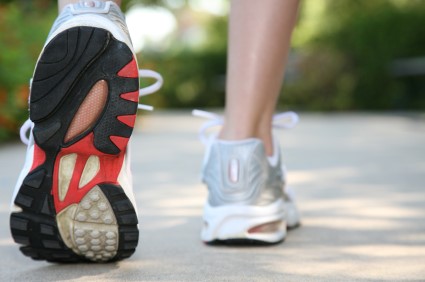 As there are about “54 million runners or joggers in the United States,” health and fitness experts recommend “at least 150 minutes of activity a week for people to maintain a healthy lifestyle.” However, for those who run and exercise often, this also means that they are at risk of running injuries. Recently physical therapists and running experts have discovered that athletes can prevent running injuries by adhering to proper running technique, such as reducing impact loading. Video analysis is also used to assess the athlete’s form and gait, which can then help develop a proper training program.
As there are about “54 million runners or joggers in the United States,” health and fitness experts recommend “at least 150 minutes of activity a week for people to maintain a healthy lifestyle.” However, for those who run and exercise often, this also means that they are at risk of running injuries. Recently physical therapists and running experts have discovered that athletes can prevent running injuries by adhering to proper running technique, such as reducing impact loading. Video analysis is also used to assess the athlete’s form and gait, which can then help develop a proper training program.
Runners can still be prone to running injuries even with proper precautions. If you are suffering from a running injury, consult with Dr. Joshua David Scoll of Pennsylvania. Our doctor will assist you with all of your foot and ankle needs.
How to Prevent Running Injuries
Many common running injuries are caused by overuse and overtraining. When the back of the kneecap starts wearing out and starts causing pain in your knee, this is commonly referred to as runner’s knee. Runner’s knee is a decrease in strength in your quadriceps and can occur if you’re not wearing properly fitted or supporting shoes. To prevent runner’s knee, focusing on hip strengthening is a good idea, as well as strengthening your quads to keep the kneecaps aligned.
What Are Some Causes of Running Injuries?
- One cause of a common running injury is called iliotibial band syndrome.
- Plantar fasciitis is also another common injury.
- Stress fractures can occur from overtraining, lack of calcium, or even your running style.
Best Ways to Prevent Running Injuries
- Wear footwear that fits properly and suits your running needs.
- Running shoes are the only protective gear that runners have to safeguard them from injury.
- Make a training schedule. Adding strengthening exercises as well as regular stretching can help keep you strong and limber and can lessen the possibility of injuries.
- Stretching keeps muscles limber, this will help you gain better flexibility.
If you have any questions, please contact our offices located in Philadelphia and Bensalem, PA. We offer the newest diagnostic and treatment technologies for all your foot care needs.
